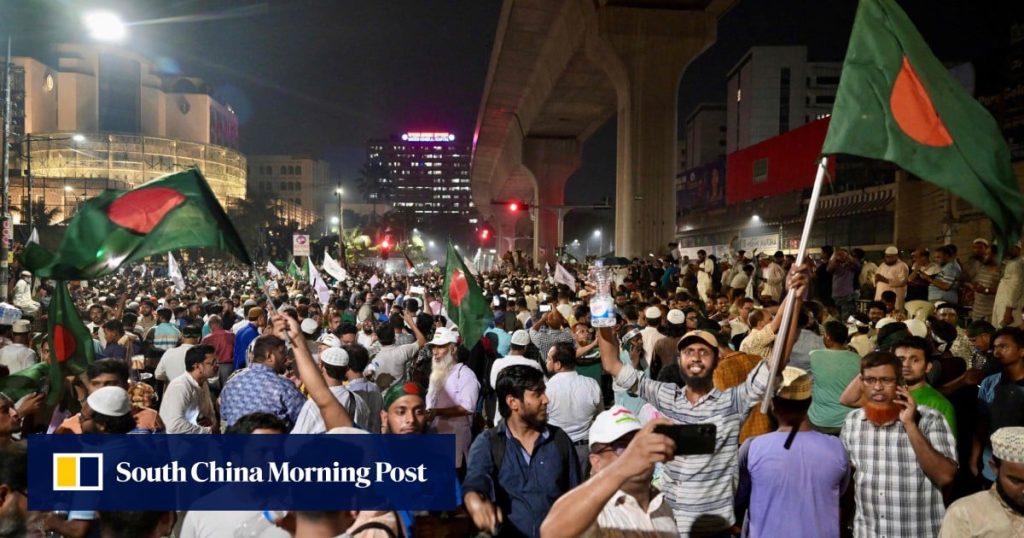A move by Bangladesh’s interim government to bar the former ruling Awami League – the party of ousted leader Sheikh Hasina – from political activity has deepened uncertainty over coming elections and drawn unease from neighbouring India.
The ban, announced last week by the administration of Nobel Peace Prize laureate Muhammad Yunus, is tied to proceedings at Bangladesh’s International Crimes Tribunal, which is investigating allegations that Hasina and several top aides orchestrated a violent crackdown on demonstrators.
The party, one of the country’s two dominant political forces, has been barred from holding rallies or contesting elections until the tribunal concludes its inquiry.
India – where Hasina has taken refuge following her removal from office in student-led protests last year – has expressed alarm over the implications of the ban for Bangladesh’s political future, warning that the move could undermine democratic norms in the region.
“As a democracy, India is naturally concerned at the curtailment of democratic freedoms and shrinking political space,” Ministry of External Affairs spokesman Randhir Jaiswal said on Tuesday. “We strongly support the early holding of free, fair and inclusive elections in Bangladesh.”
Dhaka, however, pushed back swiftly. Shafiqul Alam, a top aide to interim leader Yunus, said the country’s electoral process was “an internal matter” and defended the decision as being in the interest of national security and sovereignty.


